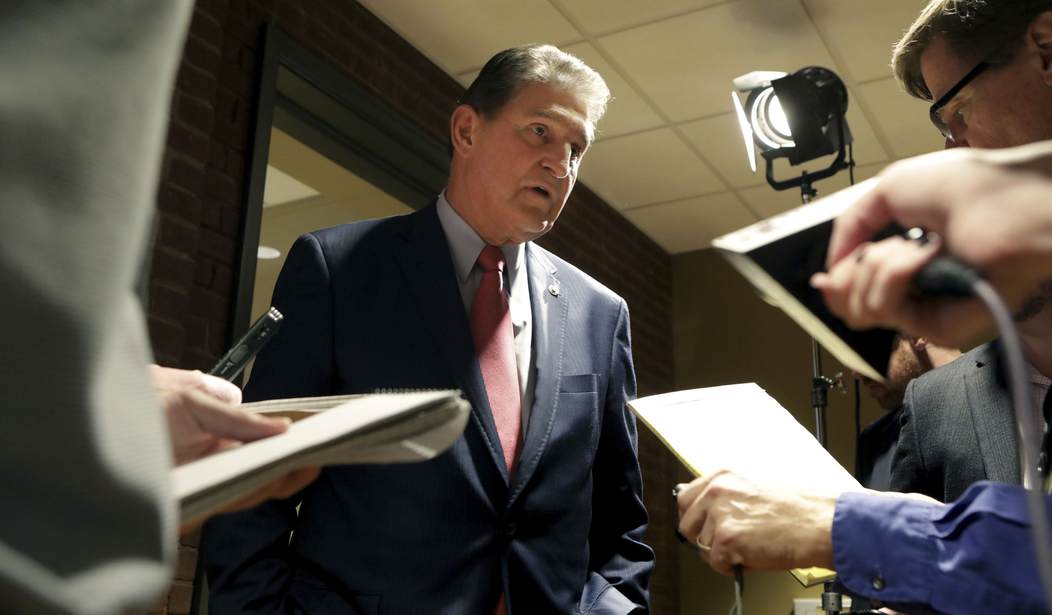Senator Joe Manchin (D-W.Va.) is a “Blue Dog” Democrat out of political necessity. He is the lone Democrat representing his state in Washington, D.C., and could be one of the most powerful people in Congress because of the evenly divided Senate. To move any radical legislation requiring a simple majority vote, Manchin must vote yes to allow Vice President Kamala Harris to break the tie.
Arizona’s Kyrsten Sinema (D-Ariz.), who represents thoroughly purple Arizona, is in a similar political bind. She walks a fine line to avoid alienating her progressive base while not appearing so radical that moderates and independents seek a different option. Democrats also require her vote on a simple majority measure.
Sinema was a leader during the recent bipartisan “infrastructure” bill negotiations. Manchin and 19 Republicans provided their votes to pass over a trillion in spending. The legislation adds $2900 per household to the national debt, which already costs each household $220,000.
Related: Republicans Fall for Biden’s Infrastructure ‘Bait and Switch’
West Virginia and Arizona voters are sure to be excited by massive investments in electric vehicle charging stations and green energy production. The legislation allocates substantial funds towards mass transit, which only benefits large urban areas. The bill also enables an anti-car agenda, funding “traffic calming” programs and paving the way to a per-mile tax.
A formula will no longer govern the allocation of Department of Transportation funds. Secretary Pete Buttigieg will have control over the distribution of billions in grants. It is doubtful the choo-choo train fanboy will be too concerned with surface roads in rural and exurban America. Allowing too many more progressives priorities through could hurt Sinema and Manchin at the ballot box.
The proposed $3.5 trillion budget blueprint Democrats intend to pass is full of them, including free community college, universal pre-K, and “climate justice.” Senate Majority Leader Chuck Schumer answered questions about the cost, saying Democrats would address it through wealth and corporate taxes.
Related: Biden Should Take a Lesson From Bernie Sanders and Define ‘Fair Share’ Accurately
In late July, Sinema indicated the price tag for the budget was too high:
“I have also made clear that while I will support beginning this process, I do not support a bill that costs $3.5 trillion — and in the coming months, I will work in good faith to develop this legislation with my colleagues and the administration to strengthen Arizona’s economy and help Arizona’s everyday families get ahead,”
Manchin clarified his stance Wednesday morning in a statement:
“Early this morning, I voted ‘YES’ on a procedural vote to move forward on the budget reconciliation process because I believe it is important to discuss the fiscal policy future of this country, However, I have serious concerns about the grave consequences facing West Virginians and every American family if Congress decides to spend another $3.5 trillion.”
“Over the past year, Congress has injected more than $5 trillion of stimulus into the American economy – more than any time since World War II – to respond to the pandemic. The challenge we now face is different: millions of jobs remain unfilled across the country and rising inflation rates are now an unavoidable tax on the wages and income of every American,” he said. “These are not indications of an economy that requires trillions in additional spending.”
“Adding trillions of dollars more to nearly $29 trillion of national debt, without any consideration of the negative effects on our children and grandchildren, is one of those decisions that has become far too easy in Washington,” Manchin added. “Given the current state of the economic recovery, it is simply irresponsible to continue spending at levels more suited to respond to a Great Depression or Great Recession – not an economy that is on the verge of overheating.”
Republicans have unanimously opposed the budget reconciliation effort. Manchin and Sinema voted for the budget resolution blueprint, and Senate Democrats will require their votes for the eventual legislation. Neither seems willing to support a spending blowout.
Deep cuts and negotiations on the $3.5 trillion could trigger an intraparty war. Speaker Nancy Pelosi will not vote on the infrastructure package unless the entire $3.5 trillion in new spending passes. Even if she has a change of heart, there are only three votes to spare in the House. Members of the progressive caucus, like Alexandria Ocasio-Cortez (D-N.Y.), said $3.5 trillion in additional spending through budget reconciliation is not enough. Failure of the factions within the party to reach an agreement could severely curtail the Biden agenda.
Related: Beyond Farce: Biden Wants OPEC to Pump More Oil While He Strangles U.S. Energy Production
Usually gridlock is between the parties in a divided government. Gridlock within a single party in a unified government can prevent things from going completely sideways. With the rising cost of gas, groceries, and other necessary items, an impasse on additional spending is a win for working Americans. Manchin and Sinema need to stand firm.
Contrary to the view of Senator Lindsey Graham, Americans don’t want proof the government can get big things done. Most of us prefer paying $1.89 a gallon for gasoline.










Join the conversation as a VIP Member